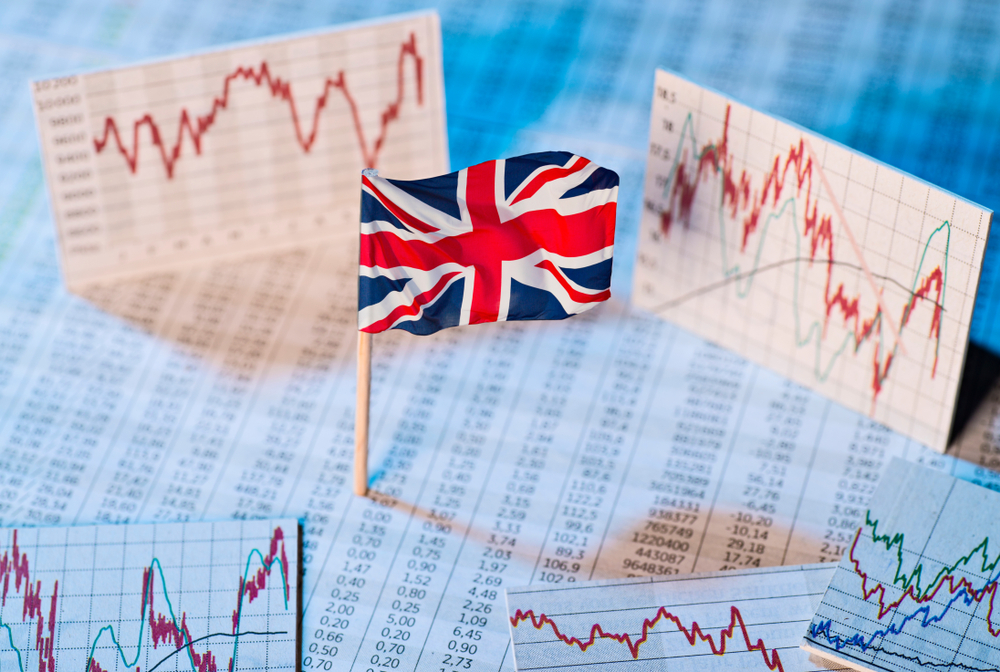
Britain's economy expanded by a meagre 0.1% in August.
The UK economy expanded by 0.1% in August following an unexpected contraction in July. In a boost for Britain’s industry, much of this activity was driven by a strong performance from the manufacturing sector, as well as healthy demand for air conditioning units during a warm summer.
Meanwhile, in a move that surprised no one, Reeves confirmed for the first time that taxes would be on the rise in the autumn budget. However, she laid the blame for this squarely at the door of Brexit and the string of economic missteps the UK has taken over the past decade. Just how acceptable that argument is to the British people may become apparent at May’s local elections.
Still, this fresh round of fiscal realism was enough to send the yield on long-dated gilts (UK sovereign debt, the price of which moves inversely to yields) to a two-month low. Sterling bounced back too, strengthening to its best level this week against the euro and the US dollar.
Much of Wednesday’s action centred around the International Monetary Fund (IMF), which is gearing up for its annual meetings with the World Bank over the weekend. Ahead of those discussions, the IMF’s bi-annual World Economic Outlook report forecast global debt would hit 100% of GDP by 2029.
The IFS followed up that assessment by projecting that Reeves would have to find £22 billion to plug the hole in public finances at the autumn budget. That isn’t as high a figure as some had predicted, but it will still take some meeting with the chancellor looking to build a larger buffer than the razer thin headroom the government was forced to work with last year.
Central bankers were again in the spotlight on Wednesday. Representatives from the Bank of England, the European Central Bank and the Federal Reserve stood behind assorted lecterns, but none were able to provide as impactful a soundbite as Jerome Powell’s surprisingly dovish comments earlier this week.
Make sure any upcoming transactions are protected against the risks of sudden market movements. Secure a fixed exchange rate now with a forward contract; call your account manager on 020 3918 7255 to get started.
GBP: G7 inflation leader
The IMF expects the UK to face the highest rate of inflation of all G7 nations in both 2025 and 2026. Combined with the recent warning that inflation could become entrenched, next week’s inflation report – where the headline rate is predicted to reach 4% – looks like a big one for sterling.
GBP/USD: the past year
EUR: Industry and euro fall
A minor industrial output survey was the highlight of a quiet day for the euro, which saw early gains against the pound slip away into a third-cent loss. In that survey, manufacturing output fell by 1.2% in August, better than the predicted 2.2% decline but a sharp fall from July’s 0.3% increase.
GBP/EUR: the past year
USD: Trade war enters the kitchen
The US and China traded barbs over several economically significant foodstuffs yesterday. China responded to rising trade tensions with a threat to cease buying American soybeans. President Trump countered that by suggesting his nation might stop buying Chinese cooking oil. These interactions might seem insignificant, but they will continue to affect the US dollar up to the 1 November trade deadline.
EUR/USD: the past year
For more on currencies and currency risk management strategies, please get in touch with your Smart Currency Business account manager on 020 7898 0500 or your Private Client Account Manager on 020 7898 0541.

 020 7898 0500
020 7898 0500